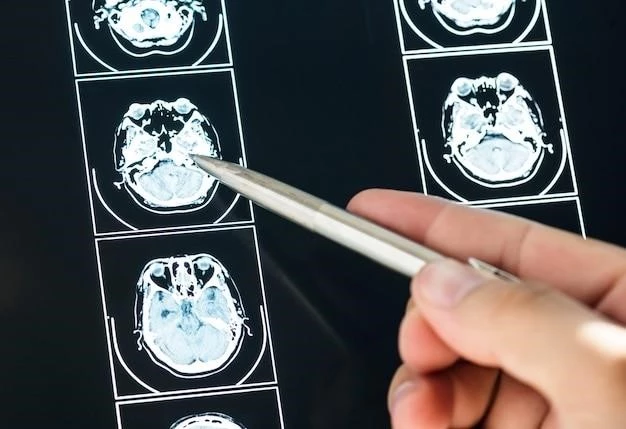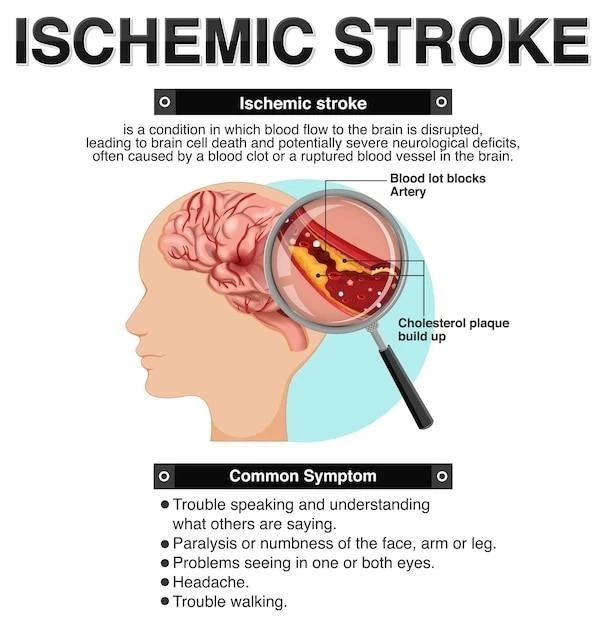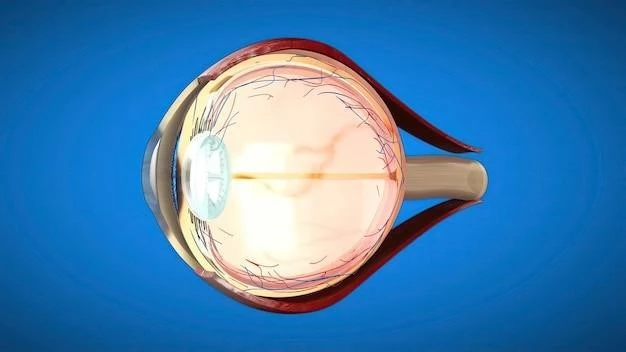Introduction to Oculo Cerebro Acral Syndrome
Oculo-cerebro-renal syndrome (Lowes syndrome) is characterized by mental and motor retardation, cataract, glaucoma, and renal abnormalities.
Definition and Overview
Oculo-cerebro-renal syndrome (Lowes syndrome) is characterized by mental and motor retardation, cataract, glaucoma, and renal abnormalities.
Characteristics of Oculo Cerebro Acral Syndrome
Oculo-cerebro-renal syndrome (Lowes syndrome) is characterized by mental and motor retardation, cataract, glaucoma, and renal abnormalities.
Mental and Motor Retardation
Oculo-cerebro-renal syndrome (Lowes syndrome) is characterized by mental and motor retardation, leading to developmental delays in affected individuals.
Ocular Abnormalities⁚ Cataract and Glaucoma
Oculo-cerebro-renal syndrome (Lowes syndrome) is known for ocular abnormalities such as cataracts and glaucoma, contributing to vision impairment in affected individuals.
Oculo-cerebro-renal syndrome (Lowes syndrome) often presents with renal abnormalities such as proximal tubular dysfunction, leading to metabolic issues and potential complications.
Renal Abnormalities
Oculo-cerebro-renal syndrome (Lowes syndrome) often presents with renal abnormalities such as proximal tubular dysfunction, leading to metabolic issues and potential complications.
Autosomal Recessive Inheritance
Oculo-cerebro-renal syndrome, characterized by mental and motor retardation and renal abnormalities, follows an autosomal recessive pattern of inheritance.
Nucleotide Excision Repair Disorders
Oculo-cerebro-renal syndrome (Lowes syndrome) is linked to nucleotide excision repair disorders, contributing to the complexity of its genetic basis and manifestation in affected individuals.
Diagnosis and Clinical Presentation
Oculo-cerebro-renal syndrome (Lowes syndrome) diagnosis involves assessing mental and motor retardation, cataract, glaucoma, and renal abnormalities as part of the clinical presentation.
Cutaneous Phenotype
Oculo-cerebro-renal syndrome (Lowes syndrome) may present with a unique cutaneous phenotype that involves skin findings along with the characteristic symptoms of the condition.
Systematic Dermatologic Examination
Patients with Oculo-cerebro-renal syndrome may undergo a systematic dermatologic examination to assess skin manifestations correlated with the condition, providing valuable information for diagnosis and management.
Differential Diagnoses
Oculo-cerebro-renal syndrome (Lowes syndrome) shares similarities with other syndromes, requiring careful comparison in diagnosis.
Oculo-cerebro-renal syndrome shares similarities with Cockayne syndrome, cerebro-oculo-facial-skeletal syndrome, and oculocerebrorenal syndrome, emphasizing the importance of accurate diagnosis and understanding the distinct features of each condition.
Research and Studies on Oculo Cerebro Acral Syndrome
Oculo-cerebro-renal syndrome (Lowes syndrome) has been the subject of research focusing on genetic aspects and clinical manifestations.
When comparing Oculo-cerebro-renal syndrome with related syndromes like Cockayne syndrome and cerebro-oculo-facial-skeletal syndrome, distinct genetic and clinical features set them apart, aiding in accurate diagnosis.
Comparison with Other Syndromes
When comparing Oculo-cerebro-renal syndrome with related syndromes like Cockayne syndrome and cerebro-oculo-facial-skeletal syndrome, it is essential to consider the genetic and clinical distinctions to ensure accurate diagnosis and appropriate management.
Oculo Cerebro Acral Syndrome Variants
Additional variants of Oculo-cerebro-renal syndrome are Kaufman Oculocerebrofacial Syndrome (KOS) and Oculocerebrocutaneous Syndrome.
Kaufman Oculocerebrofacial Syndrome (KOS)
Kaufman Oculocerebrofacial Syndrome (KOS) is a rare disorder characterized by severe intellectual disability, distinctive craniofacial features, microcephaly, hypotonia, and ocular abnormalities.
Oculocerebrocutaneous Syndrome
Oculocerebrocutaneous Syndrome is a rare genetic disorder characterized by eye, brain, and skin malformations, such as orbital cysts, microphthalmia, and facial skin tags. It affects multiple systems and is primarily evident from birth with distinct features in each affected area.

Treatment and Management Approaches
Treatment of Oculo-cerebro-renal syndrome involves managing symptoms such as cataract, glaucoma, intellectual disability, and renal abnormalities through a multidisciplinary care approach.
Therapeutic Interventions
Therapeutic interventions for Oculo-cerebro-renal syndrome include treatments targeting symptoms such as cataracts, glaucoma, intellectual disability, and renal abnormalities to improve the quality of life for affected individuals.
Multidisciplinary Care Team
The management of Oculo-cerebro-renal syndrome involves a multidisciplinary care team approach, comprising specialists in ophthalmology, neurology, nephrology, genetics, and rehabilitation services to provide comprehensive care tailored to address the specific needs of individuals with the condition.
Prognosis and Outlook
The long-term prognosis of Oculo-cerebro-renal syndrome is influenced by factors such as disease severity and timely interventions, impacting the overall quality of life for individuals with the condition.
Long-Term Prognosis
The long-term prognosis for individuals with Oculo-cerebro-renal syndrome varies based on disease severity and the effectiveness of treatments, impacting their overall quality of life.
Considering the holistic care approach, addressing not only the physical but also the social and emotional needs, plays a crucial role in enhancing the quality of life for individuals with Oculo-cerebro-renal syndrome.
Patient Support and Resources
Accessing patient organizations and clinical trials can provide valuable support and opportunities for individuals with Oculo-cerebro-renal syndrome.
Patient Organizations
Engaging with patient organizations offering support and resources can provide valuable assistance to individuals and families navigating challenges associated with Oculo-cerebro-renal syndrome, fostering a sense of community and access to relevant information and services.
Clinical Trials and Research Opportunities
Engaging in clinical trials provides individuals with Oculo-cerebro-renal syndrome the opportunity to contribute to research advancements and explore potential therapeutic options in a structured scientific setting.
Current Challenges and Future Directions
Addressing current challenges in understanding Oculo-cerebro-renal syndrome is vital for guiding future research towards improved diagnostics, treatments, and management strategies.
Quality of Life Considerations
Considering the holistic care approach is crucial for enhancing the quality of life for individuals with Oculo-cerebro-renal syndrome by addressing physical, social, and emotional needs.
Future research on Oculo-cerebro-renal syndrome could explore genetic abnormalities, biomarkers, novel treatments, and the impact of early interventions on disease progression to enhance patient outcomes.
Case Studies and Clinical Presentations
Exploring case studies and clinical presentations can provide valuable insights into the manifestations of Oculo-cerebro-renal syndrome in affected individuals.
Potential areas for further research on Oculo-cerebro-renal syndrome may focus on exploring genetic abnormalities, developing biomarkers, investigating novel treatments, and assessing the impact of early interventions on disease progression to enhance patient outcomes in the long term.
The clinical manifestations of Oculo-cerebro-renal syndrome include congenital cataracts, glaucoma, muscular hypotonia, intellectual disability, and defective proximal tubular reabsorption of various substances in the kidneys, encompassing a range of symptoms across multiple systems.

Educational Initiatives and Awareness Campaigns
Educational initiatives and awareness campaigns play a vital role in disseminating information about Oculo-cerebro-renal syndrome, helping raise awareness, promote understanding, and support affected individuals and their families.
Clinical Manifestations
The clinical manifestations of Oculo-cerebro-renal syndrome include congenital cataracts, glaucoma, muscular hypotonia, intellectual disability, and defective proximal tubular reabsorption of various substances in the kidneys, reflecting the multisystem impact of the condition.
Potential Areas for Further Research
Future research on Oculo-cerebro-renal syndrome could explore genetic abnormalities, biomarkers, novel treatments, and the impact of early interventions on disease progression to enhance patient outcomes.
Collaborative Efforts and Research Networks
Collaborative efforts involve patient organizations and research networks contributing to advancements in understanding, diagnosing, and treating Oculo-cerebro-renal syndrome, fostering a multidisciplinary approach in addressing the complexities of the condition.
Accessing educational resources is essential for disseminating information about Oculo-cerebro-renal syndrome, empowering individuals, families, and healthcare professionals with valuable knowledge to enhance understanding and management of the condition.
Research Collaboration Platforms
Research collaboration platforms provide a structured environment for researchers, clinicians, and organizations to collaborate on advancing knowledge and enhancing diagnostics, treatments, and management strategies for Oculo-cerebro-renal syndrome.
Impact on Healthcare Delivery and Services
The diagnostic challenges and therapeutic innovations in Oculo-cerebro-renal syndrome influence healthcare delivery, emphasizing the need for specialized care teams and tailored treatment approaches.
Educational Resources
Educational resources provide valuable information on Oculo-cerebro-renal syndrome, helping enhance understanding and support individuals and families affected by the condition.
Therapeutic Innovations
Continual therapeutic innovations in Oculo-cerebro-renal syndrome are essential to enhance patient outcomes, optimize treatments, and improve the overall management of the condition through advanced medical approaches.
Conclusion and Summary
In conclusion, Oculo-cerebro-acral syndrome presents a complex clinical picture characterized by mental and motor retardation, ocular abnormalities, and renal manifestations. Collaborative efforts, research networks, and ongoing therapeutic innovations are crucial in enhancing patient outcomes and advancing the management of this rare disorder.
